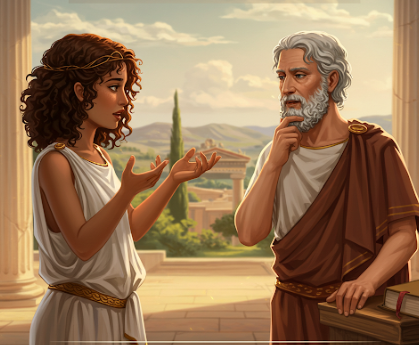Introduction
The Socratic Method, developed by the Greek philosopher Socrates (469–399 BCE), is a form of dialectical questioning designed to stimulate critical thinking, challenge assumptions, and illuminate ideas through systematic inquiry. Rather than providing direct answers, Socrates engaged his interlocutors in a rigorous process of questioning, forcing them to analyze their beliefs and refine their understanding. This method remains a foundational tool in philosophy, law, and education today.
The Structure of the Socratic Method
Socratic dialogue typically follows a structured sequence:
Questioning an Assumption: Socrates begins by questioning a commonly held belief or assumption.
Clarification: He asks for definitions and explanations to ensure a precise understanding of the concept in question.
Critical Examination: Through follow-up questions, he reveals inconsistencies or contradictions in the reasoning.
Refinement of Ideas: As flaws in logic are exposed, the participant is encouraged to reconsider and refine their perspective.
New Understanding or Aporia: The dialogue often concludes with either a deeper understanding or the realization of one’s own ignorance (aporia), prompting further exploration.
Examples of the Socratic Method in Action
Socrates used his method to examine concepts such as justice, virtue, and knowledge. One of the most famous examples is found in Plato’s Republic, where Socrates challenges Thrasymachus' definition of justice as "the advantage of the stronger." Through persistent questioning, he dismantles Thrasymachus’ argument, forcing him to rethink his position.
In Meno, Socrates applies his method to explore whether virtue can be taught. By questioning Meno’s definitions, Socrates leads him to recognize contradictions, ultimately demonstrating that knowledge is more complex than simple instruction.
Applications in Modern Education and Law
The Socratic Method continues to influence various fields:
Education: Teachers use Socratic questioning to encourage students to think critically and develop their reasoning skills.
Law: Law schools employ the method in case studies, compelling students to analyze arguments and justify their conclusions.
Ethics and Philosophy: It remains a powerful tool for exploring moral dilemmas and philosophical concepts.
Conclusion
Socrates' method of teaching through questions and dialogue revolutionized the pursuit of knowledge. By challenging assumptions and fostering critical inquiry, the Socratic Method remains one of the most effective techniques for intellectual development and philosophical discourse. Its legacy endures in modern education, legal practice, and ethical reasoning, proving the timeless power of questioning in the search for truth.









